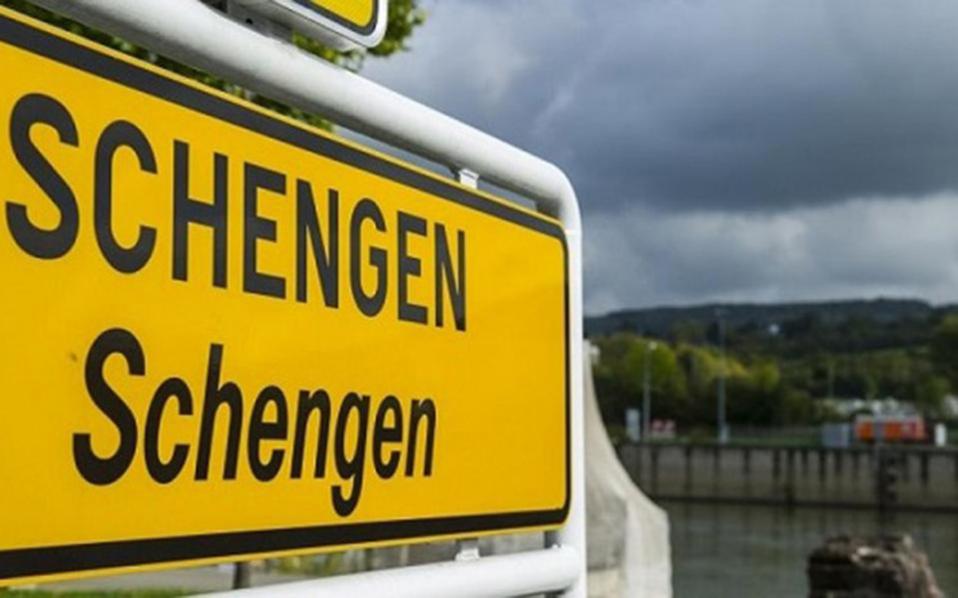Europe’s economy faces confidence test as borderless ideal fades

Danish officers checking travel documents on the boundary with Germany this week aren’t out to stymie trade or hinder tourism – they’re under orders from politicians anxious to stem the flow of refugees.
Even so, analysts are beginning to worry about what could happen to the already-embattled region when the free movement of people is called into question.
Like the euro, the single currency used by 19 of the European Union’s 28 nations, the Schengen Agreement has long been touted by politicians as an irrevocable pillar of a multi- national union, allowing unimpeded travel between states for business or pleasure.
So with an already fragile recovery, monetary policy stretched trying to fend off deflation and companies deferring investment, the mere threat that Schengen could unravel may be hard to shrug off.
“If in the migrant crisis Schengen were to disintegrate, this would send a disastrous signal to markets: the European project would be seen as in fact reversible,” said Wolfango Piccoli, managing director of Teneo Intelligence in London. “Nobody could blame investors if against that backdrop, they would suddenly start to re-evaluate the reliability of promises made by European institutions in the euro-zone crisis.”
The EU says Europeans make over 1.25 billion journeys within the Schengen zone every year, which comprises 26 countries from the Barents Sea to the eastern Mediterranean. It also includes countries such as Iceland and Norway that aren’t part of the EU.
Signed in 1985, Schengen took effect 10 years later. In normal times, it means travelers within the bloc aren’t subjected to border checks, and external citizens holding a visa for one country may usually travel without restriction to all.
These aren’t normal times and now the edifice of carefree travel across the continent is cracking. During 2015, the arrival of people fleeing wars and persecution in Asia, Africa and the Middle East exceeded 1 million, sparking political tension and public debate over how, and where, to settle the newcomers.
Denmark’s decision to establish temporary controls seems, according to the EU, to be covered by Schengen rules that allow such curbs in emergencies. But it’s not the first; that move came hours after Sweden started systematic ID checks at its borders, while Germany was forced to take similar action in September along its frontier with Austria. Hungary erected a fence at its borders with Serbia and Croatia last year.
Temporary border controls “naturally pose a danger” that they’ll undermine the Schengen Agreement, German Chancellor Angela Merkel said in Berlin on Thursday. “Everything must be done” to preserve Schengen, which is both a symbol of Europe growing together and an economic factor, she said at at news conference after talks with Romanian Prime Minister Dacian Ciolos.
Calling Schengen into question potentially removes one way in which Europe seeks to make the best of its patchwork of economic and cultural systems, according to Marc Ostwald, an analyst at ADM Investor Services International in London.
“Freedom of movement, above all labor, which is in principle what Schengen is about, is important, above all from the potential for maximizing the benefits of the EU’s talent pool,” he said.
Few economists are comfortable making estimates on the economic impact of the arrival of so many refugees at this stage, let alone on what the threat to passport-free travel could do.
“Erosion of Schengen makes labor mobility that much more difficult,” said Dane Davis, a Wall Street analyst and co-author of a 2014 paper on the trade benefits of the agreement.
Davis estimated then that a net increase of migrants from one country to another by just one percent a year can expand trade by an equivalent amount. Membership of Schengen brings a bilateral trade boost of 0.1 percent per year, he wrote.
If Schengen were to collapse altogether some of that benefit may be foregone, he said. “Ten years from now trade will naturally be greater than now, but without Schengen it will maybe be less than it would have been.”
Though economic confidence in the euro area, as measured by the European Commission, is at its highest in more than four years, investors became less upbeat about the future throughout 2015 as first the war in Ukraine, then the Greek crisis, and finally the migration boom increased uncertainty.
When investors are hesitant, then the economy suffers eventually, according to Yael Selfin, head of macroeconomics at KPMG LLP in London. Gross capital formation in the euro area was flat in the third quarter of 2015.
“There’ll be quite a bit of backwards and forwards in terms of the agreements, but it is definitely not encouraging and it does show that we are likely to see more restriction on the borders,” she said. “The key thing is it may make business work more slowly internationally.”
In the euro-area, where all countries but Cyprus and Ireland belong to the Schengen bloc, output expanded 0.3 percent in the third quarter, continuing a recovery supported mostly by consumption and government spending. A loss of momentum would turn attention to the European Central Bank and, potentially, the need for more stimulus.
With the economic fallout still mostly incalculable, the Schengen debate may remain in the realm of politics for some months. Here, there’s a sting in the tail. As the UK heads toward a referendum on its place in the European Union, a shattering of the Schengen Agreement would muddy the waters, according to Peter Dixon, an economist at Commerzbank AG.
“In the unlikely event the agreement were to collapse, the pro-Brexit camp could say ‘we told you so’ and use it as a bargaining chip in their campaign,” he said by phone from London. “But on the other hand, maybe it would take some of the pressure off David Cameron. You could say the end of Schengen could nudge some of the core European countries toward the UK’s stated position on immigration.”
[Bloomberg]





